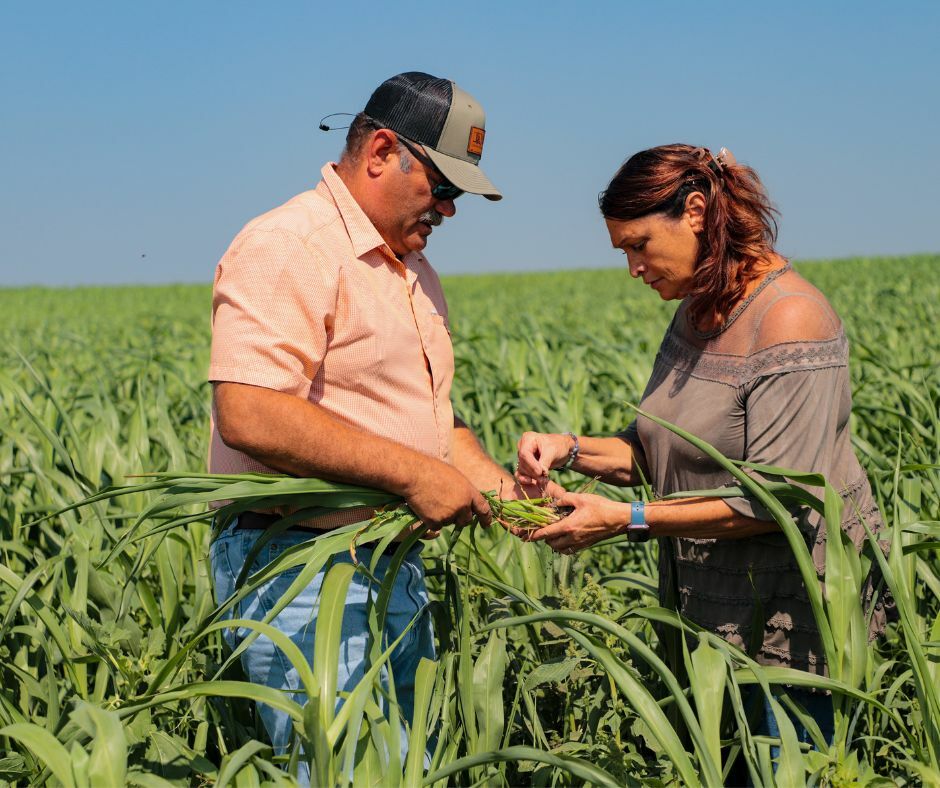Research is Key for Advancing Profitability and Efficiency for South Dakota Corn Farmers

Revitalization of Communities is a Welcome By-Product
The South Dakota Corn Utilization Council (SDCUC) is primarily responsible for the collection and administration of one-cent checkoff which makes utilization research possible. This allows SDCUC to assist in improving corn production as well as developing new and innovative uses for corn and corn by-products that benefit South Dakota corn producers. For Board Member Jim Ketelhut of Pukwana, this research is a primary reason he has volunteered to serve the organization and is a way for him to pay it forward. He shares, “Guys like me are reaping the benefits of when some guys 30 years ago did something to help jumpstart the ethanol industry, and now I’m getting the benefits of hauling corn to the ethanol plant. Hopefully in 15-20 years it will pay someone else back.”
A project that has flourished with the SDCUC support and that Jim has seen grow and deliver real benefits for farmers is located in the central part of the state just east of Pierre. Dakota Lakes Research Farm is an endeavor that the SDCUC has supported since its work started in 1990 and presently operates 840 acres of farmland.
Dakota Lakes is a not-for-profit entity made up of farmer/owners and managed by a Board of Directors. It manages the production enterprise, owns the land, the fixed facilities, and much of the machinery used at the research farm. Dakota Lakes was formed to allow research to be more responsive to farmer needs and less susceptible to politics and public funding shortages.*
According to former manager and lead researcher Dr. Dwayne Beck, “Research is critical for the advancement of not only farming practices, but for the sustainability of soil, water and air quality.” Dwayne spearheaded the research farm and has been involved in it since its inception; continuing to provide leadership and support in his retirement.
He notes, “If you look at the history of corn production in central South Dakota, it’s grown immensely since the 90’s.” Dwayne credits it to the no-till research and subsequent advances in the ability to grow corn where it was previously extremely difficult to produce successfully. “Having enough moisture to grow corn well out here in central South Dakota was really solved by incorporating no-till practices so it became a major player, and then because of that an ethanol plant was built.”
In addition to increasing production efficiency, it has also dramatically increased property value as well as enriched the community. Dwayne shares, “The schools are growing in size again in Onida. At one point, it was almost gone because the kids were leaving. Plus, the industry that supports agriculture is doing well again so that has been a real benefit for the area.”
The SDCUC has supported the following research projects since 2020
• Dakota Lakes Research Farm
• James River Research Farm
• Multi-State Ethanol Fuel Cell Project
• Northern Crops Institute Multi-Origin Corn Study
• POET Bioproducts Innovation Institute at the SDSU Research Parks
• Unused Land Carbon Impact Analysis
According to Ketelhut, “If we didn’t fund research we’d be looking out of state for that information and their research is geared towards their environment and not as applicable for us. It’s a chance for us to do site-specific research focused on specific areas in South Dakota and that’s more valuable for me as a producer.”

Jim and Natalie Ketelhut check their field planted with cover crops as part of their no-till practices in Pukwana, SD.
The SDCUC Board welcomes new research proposals on an annual basis.
“There is funding available for worthy research and we are looking for new uses to bolster the demand for corn. Something insignificant now can be very important down the road and it all starts with research.”
Jim Ketelhut, SDCUC Director, District 9 and Vice President
*Taken from dakotalakes.com
